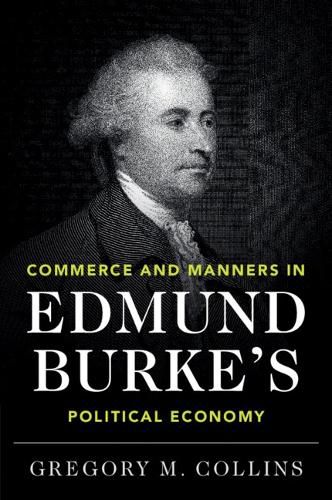Readings Newsletter
Become a Readings Member to make your shopping experience even easier.
Sign in or sign up for free!
You’re not far away from qualifying for FREE standard shipping within Australia
You’ve qualified for FREE standard shipping within Australia
The cart is loading…






Although many of Edmund Burke's speeches and writings contain prominent economic dimensions, his economic thought seldom receives the attention it warrants. Commerce and Manners in Edmund Burke's Political Economy stands as the most comprehensive study to date of this fascinating subject. In addition to providing rigorous textual analysis, Collins unearths previously unpublished manuscripts and employs empirical data to paint a rich historical and theoretical context for Burke's economic beliefs. Collins integrates Burke's reflections on trade, taxation, and revenue within his understanding of the limits of reason and his broader conception of empire. Such reflections demonstrate the ways that commerce, if properly managed, could be an instrument for both public prosperity and imperial prestige. More importantly, Commerce and Manners in Edmund Burke's Political Economy raises timely ethical questions about capitalism and its limits. In Burke's judgment, civilizations cannot endure on transactional exchange alone, and markets require ethical preconditions. There is a grace to life that cannot be bought.
$9.00 standard shipping within Australia
FREE standard shipping within Australia for orders over $100.00
Express & International shipping calculated at checkout
Although many of Edmund Burke's speeches and writings contain prominent economic dimensions, his economic thought seldom receives the attention it warrants. Commerce and Manners in Edmund Burke's Political Economy stands as the most comprehensive study to date of this fascinating subject. In addition to providing rigorous textual analysis, Collins unearths previously unpublished manuscripts and employs empirical data to paint a rich historical and theoretical context for Burke's economic beliefs. Collins integrates Burke's reflections on trade, taxation, and revenue within his understanding of the limits of reason and his broader conception of empire. Such reflections demonstrate the ways that commerce, if properly managed, could be an instrument for both public prosperity and imperial prestige. More importantly, Commerce and Manners in Edmund Burke's Political Economy raises timely ethical questions about capitalism and its limits. In Burke's judgment, civilizations cannot endure on transactional exchange alone, and markets require ethical preconditions. There is a grace to life that cannot be bought.